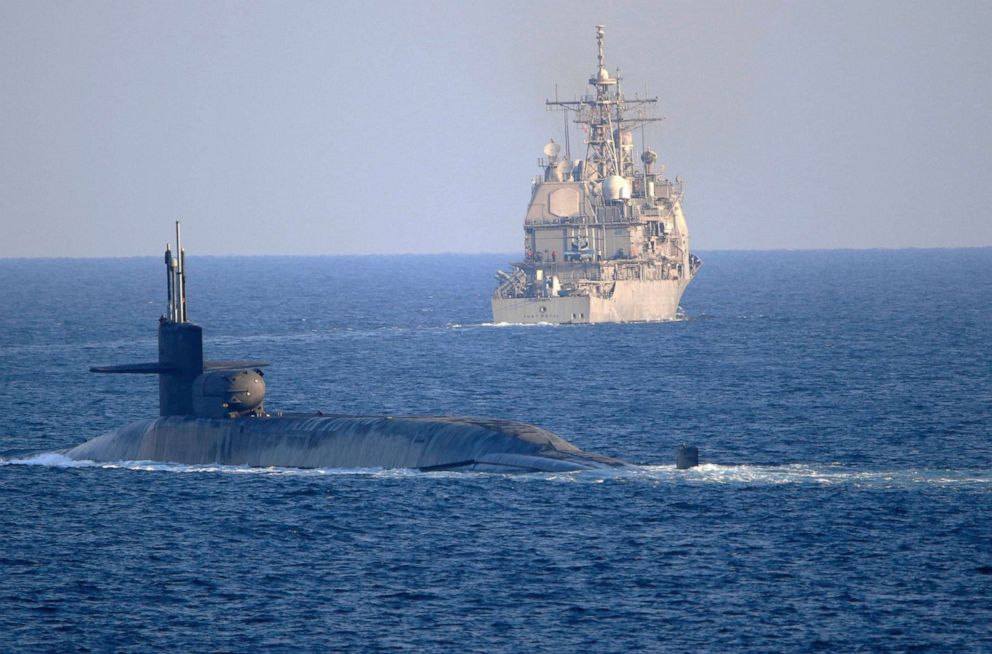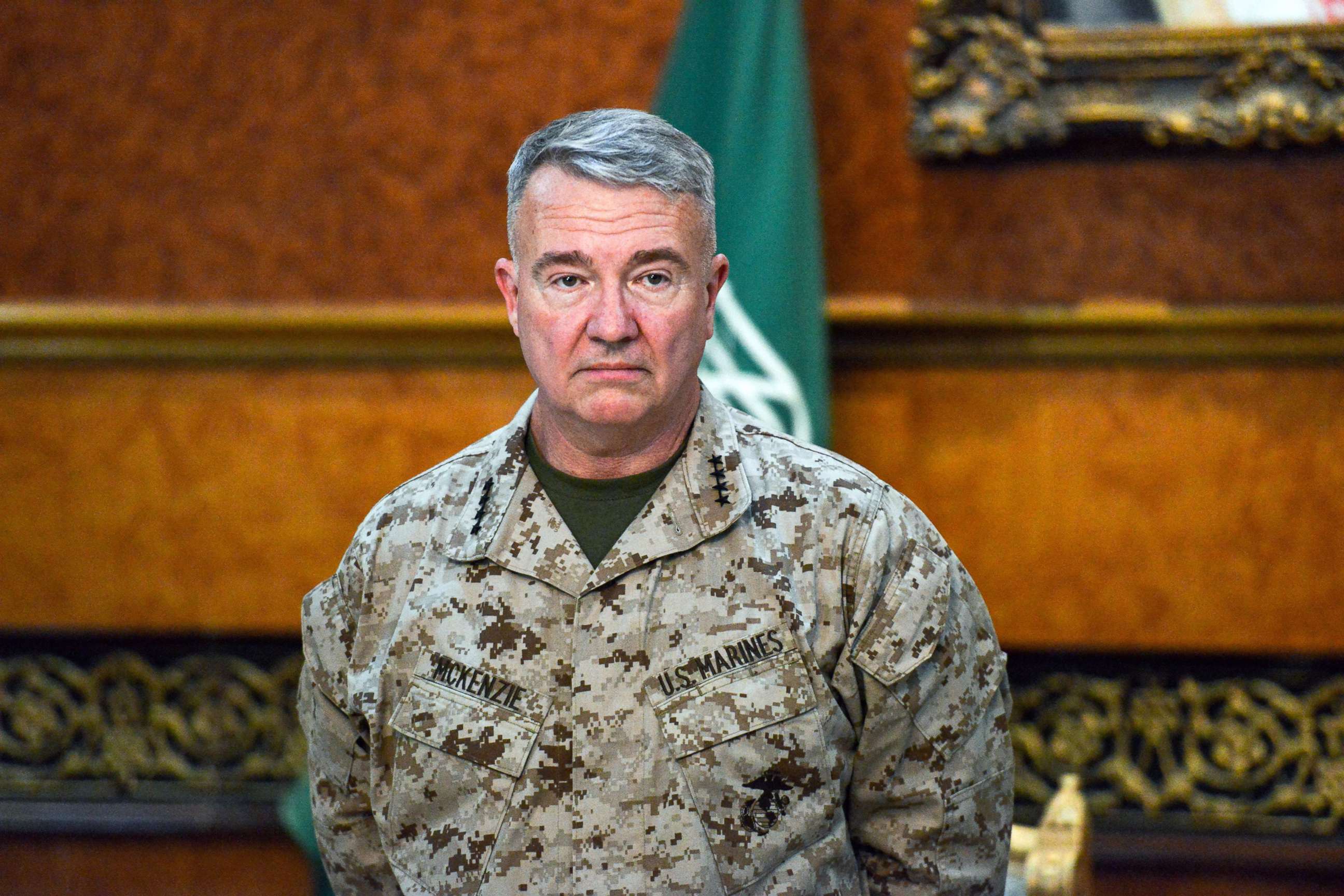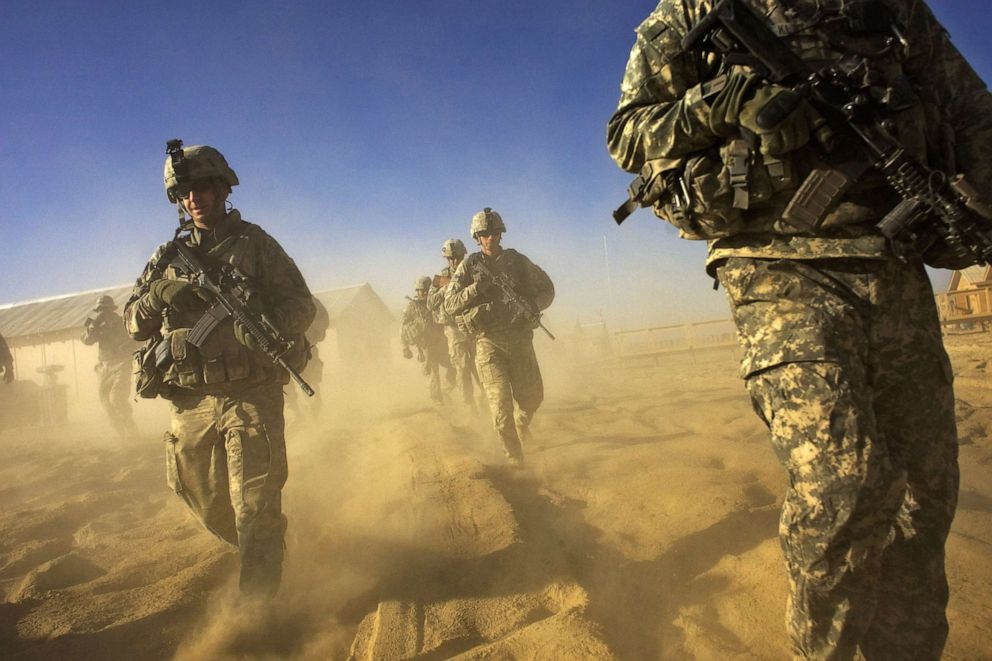Top US Gen. Frank McKenzie continues to see 'heightened risk' from Iran
McKenzie says the U.S. is not looking for escalation.
With the anniversary of the U.S. drone strike that killed a top Iranian general approaching, there remains a "heightened risk" of an Iranian threat to American interests in the Middle East, the top U.S. general in the Middle East told ABC News in an interview. But Gen. Kenneth "Frank" McKenzie also downplayed that a conflict between the U.S. and Iran is more likely.
McKenzie made his comments a day after the U.S. Navy gave the rare acknowledgement that a U.S. submarine had entered the Persian Gulf, a move widely seen as sending a message to Iran.
The head of U.S. Central Command spoke with ABC News on his way back to the United States from a trip to the Middle East that included stops in Iraq, Syria and Afghanistan.
U.S. officials have been concerned that Iran or the proxy groups that it supports in the region may retaliate for the Jan. 3 American drone strike that killed Revolutionary Guards commander Gen. Qassem Soleimani in Baghdad.

Recently, McKenzie told reporters that U.S. intelligence saw a higher risk of an attack inside Iraq by Iran or Iranian-backed groups
"I do believe we remain in a period of heightened risk," McKenzie told ABC News on Tuesday. "I would just emphasize this key point: We're not looking to escalate ourselves. We're not looking for war with Iran, I really want to emphasize that."
McKenzie continues to view Iran and its proxies as the greatest threat to U.S. interests in the region, but, he said, "It is my belief that Iran doesn't want a war with the United States right now."
"And I know for a fact that the United States doesn't seek war with Iran," he added.
On Monday, the U.S. Navy made it a point to publicly disclose the submarine USS Georgia's transit into the Persian Gulf, a move widely seen as sending a message to Iran not to raise tensions.
McKenzie would not provide an explanation for the submarine's deployment into the Gulf other than saying "there are a lot of reasons for bringing a submarine into the straight into the Arabian Gulf. I'm not going to comment on it beyond that."

And he noted that when a submarine goes through the Strait of Hormuz it "is going to be on the surface."
"So you can take that for what it's worth," he said.
The threat to U.S. troops and interests in Iraq usually takes the form of rocket attacks by Iranian-backed Shiite militias targeting the U.S. Embassy in Baghdad, though those attacks have leveled off recently.
But on Sunday night, unknown attackers fired 20 107mm rockets at the embassy compound, killing an Iraqi civilian. No Americans were hurt in the attack, which damaged some structures on the compound.
"Launching over 20 rockets at the U.S. Embassy is certainly an escalation," said McKenzie, who also labeled the attack as "very concerning" given that it was the largest such attack since 2010.
"We view this very seriously," said McKenzie. "We conveyed our concern to the government of Iraq. We are there at their invitation; they have a responsibility to protect us, and I actually believe they take it very seriously."
The investigation to determine who was responsible for the attack continues and, with so many rockets fired, McKenzie predicted "there'll be lots of evidence."
An assessment is also underway to determine if the C-RAM air-defense system played a role in minimizing the damage and casualties in the attack.

The rocket attack took place 12 hours after McKenzie had left Iraq following meetings with Iraq's chief of defense. McKenzie remained optimistic that an agreement will be reached with Iraq to maintain a long-term American military presence in the country.
The U.S. is in the process of reducing the number of forces both in Iraq and Afghanistan to 2,500 by mid-January.
The troop reduction in Afghanistan means there are more NATO forces than U.S. troops in Afghanistan, and McKenzie expected that to remain the case even as NATO likely decides to reduce its troop levels early next year.
McKenzie said that the U.S. will be able to continue to carry out its counterterrorism and advisory missions in Afghanistan, though those operations "will not be as robust as we were in the past."
The Taliban stopped attacking U.S. forces in Afghanistan as part of the peace deal reached with the U.S. earlier this year. But McKenzie remains concerned by the "way high" number of Taliban attacks against Afghan security forces.
He expressed optimism that Afghan government and Taliban negotiators will be able to address the levels of violence when they resume peace talks in Qatar on Jan. 5.




